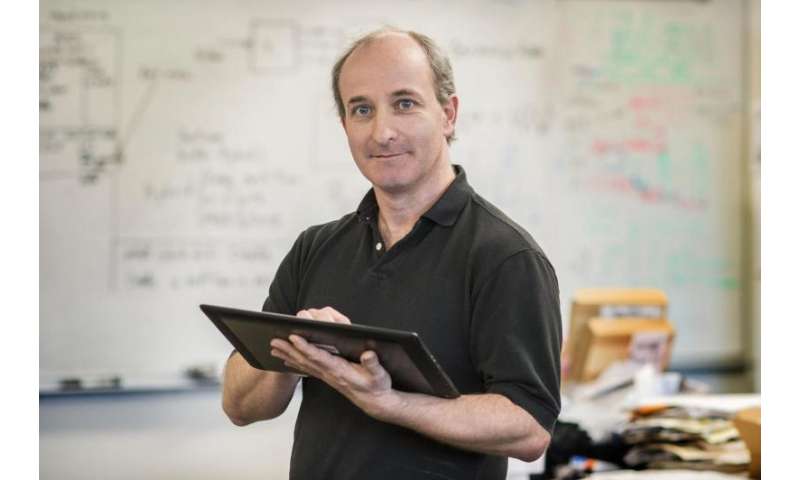New research would make robots more observant

The use of household robots for healthcare or service needs could help thousands of people, but most of those people do not have the skills to program those robots.
A University of Texas at Arlington engineer is seeking ways to program robots by having them observe a human performing a particular task, then imitate it to complete the same objective.Manfred Huber, an associate professor in the Computer Science and Engineering Department, was awarded a highly competitive $139,968 Early-concept Grant for Exploratory Research, or EAGER, award from the National Science Foundation to advance his work.
The truth, Huber said, is that a robot cannot imitate exactly the task that has been demonstrated due to physical limitations and a lack of understanding of nuance.
For example, if the task is to pick up socks from a bedroom floor, a person might walk to a sock, pick it up, walk to a clothes hamper and deposit the sock. A robot would try to imitate the actions exactly, placing its feet in the exact same spots, trying to pick up the exact same sock and so on. However, the robot might have wheels instead of feet and the sock that was picked up in the demonstration would no longer be there so the robot's way of picking up the sock would likely differ from a human.
"We want a robot to learn the function - to figure out the essence of what you're doing and figure out how to achieve the same outcome. The robot should observe what effect you have on the environment and interpret what you do, and which tasks are relevant to completion of the objective and which ones aren't," Huber said. "Since these robots aren't humanoid, they move differently and must learn to decipher what the desired outcome is and how to achieve that outcome."
To ensure that the robots learn, humans must give qualitative feedback on whether the outcome was good or bad without specifically stating what was good or bad. This allows the robot to learn what is important about a task to achieve the objective, not just replicate motions.
Khosrow Behbehani, dean of the College of Engineering, emphasized the importance of Huber's work, as well as the prestige of the NSF award.
"The NSF's EAGER grants are awarded to researchers with potentially groundbreaking ideas," Behbehani said. "Dr. Huber's work with robots, and health and the human condition may be laying the groundwork for assistive technologies that will allow those with disabilities or debilitating conditions to be self-sufficient."
Provided by University of Texas at Arlington